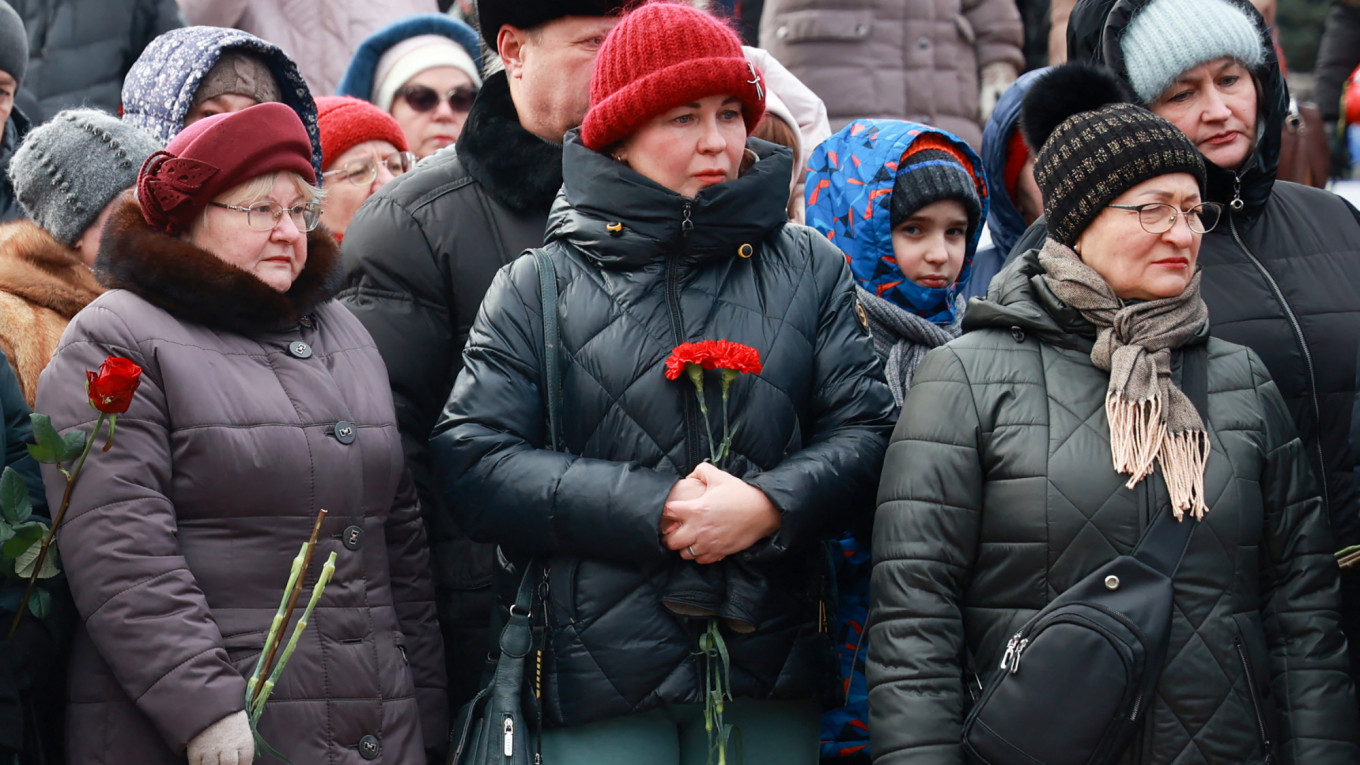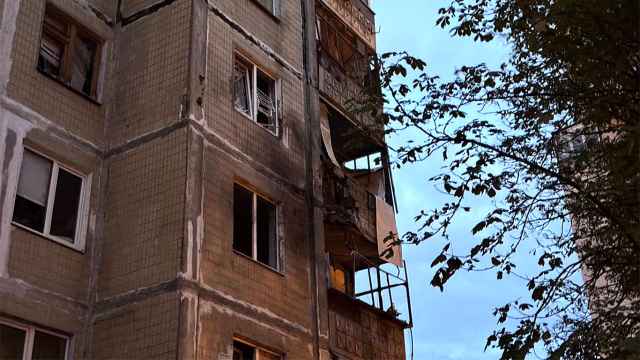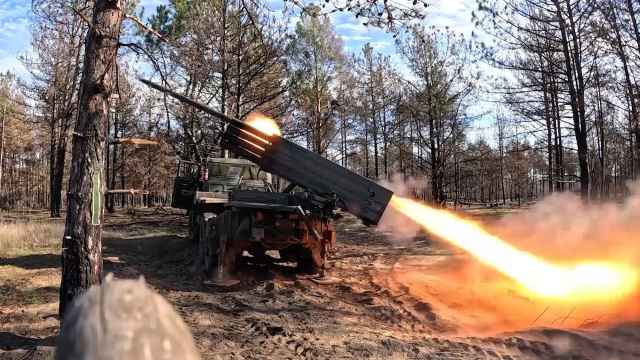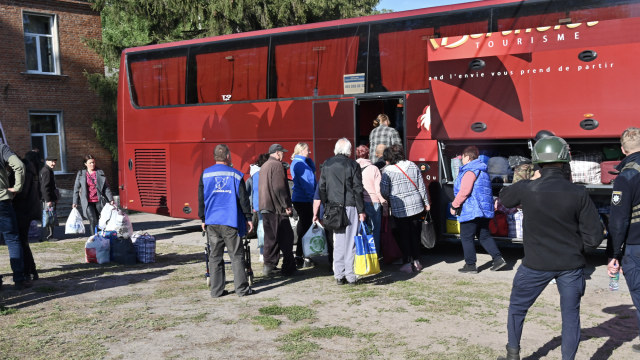Russian families from the Volga region of Samara continue to bury loved ones who died in one of the most deadly single incidents of the Ukraine war as local anger simmers over the New Year’s Eve attack.
At least 89 Russian soldiers — mostly men drafted from Samara — were killed when Ukrainian rockets slammed into a temporary barracks in the Russian-occupied Ukrainian city of Makiivka.
“His death opened our eyes — people are really being killed there,” Viktor Gorodnychy said of his relative Askhat Asimov, 29, who died in the attack.
The number of fatalities in Makiivka has not only prompted criticism from influential pro-Kremlin bloggers, who accuse the country’s military leadership of incompetence, but it has also fueled incomprehension and anger among families.
Asimov, who left behind a wife and two children, was buried last week in the small Samara region village of Sadovka to the sound of Russia's national anthem.
Dozens of people came to pay their last respects.
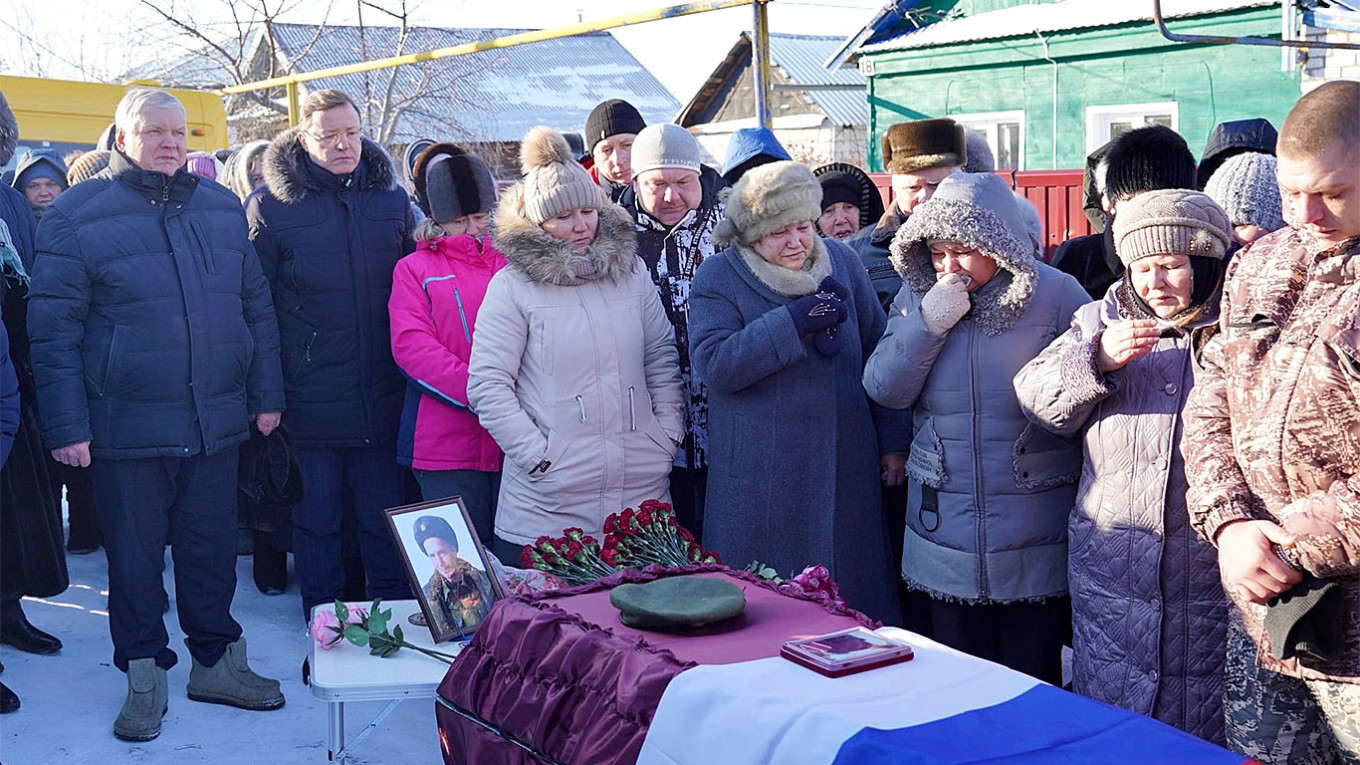
“Our tears were flowing and we could not even hold them back,” Gorodnychy, who attended the funeral, told The Moscow Times.
Gorodnychy and Asimov, who were friends, both lived in the same village about 100 kilometers from the regional capital.
“I feel negatively toward the Russian authorities,” Gorodnychy added, when asked who was to blame for his friend’s death.
Conscripted during Russia’s “partial” mobilization drive, Asimov was sent to Makiivka 10 days before the attack, according to his relatives.
“He didn't even get to fight,” Asimov’s cousin Aliya Kotova told local media Tuesday.
“They just got bombed.”
Asimov’s funeral is one of a steady trickle of military burials that have been held in the Samara region over the last week as the coffins of those who died in Makiivka are transported home and released to relatives.
At least a dozen men killed in Makiivka have so far been laid to rest in the region, according to local media reports and statements by officials.
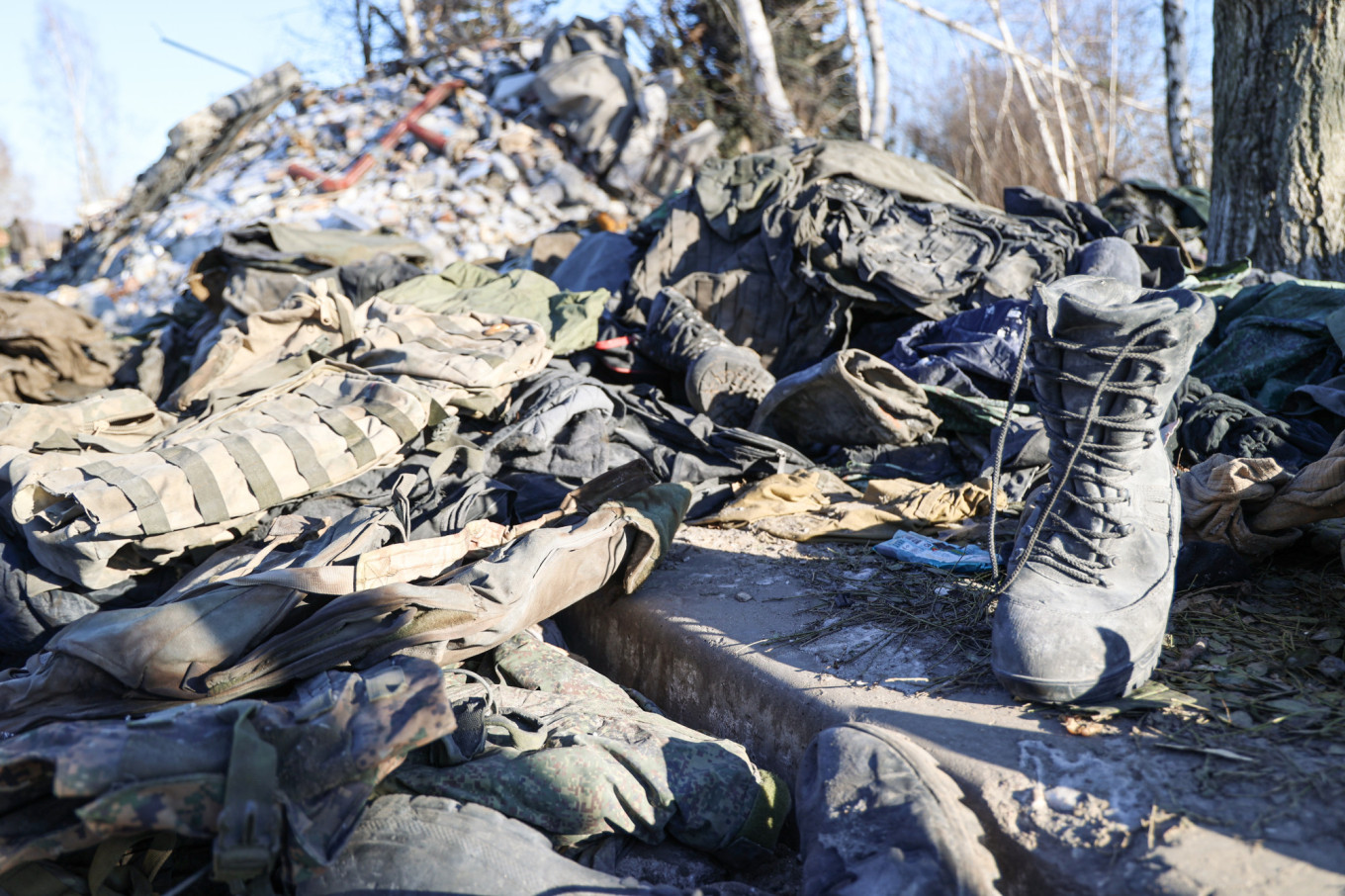
The village of Mirny, which has a population of just 7,000, has buried five men killed in the Makiivka strike, according to local Telegram group Protocol.Samara.
While Russia’s Defense Ministry has said 89 Russian soldiers were killed in the attack on New Year’s Eve — one of the most popular holidays in Russia and Ukraine — Kyiv has claimed about 400 Russian servicemen died.
Amid rumors that the real death toll could run into the hundreds, Alexei Vdovin, the military commissar of the Samara region, said Tuesday that the authorities would not publish a full list of those who were killed or injured.
“This is a job for foreign intelligence agencies to identify and conduct provocations against the relatives of servicemen,” Vdovin said in a video statement.
Along with the refusal to publish a list of victims, the fallout from the Makiivka attack has also received little coverage from Russian state media.
Some relatives claimed they had been asked by officials to keep silent.
According to Gorodnychy, social media platform Vkontakte deleted a post written by one of his relatives about the death of Asimov.
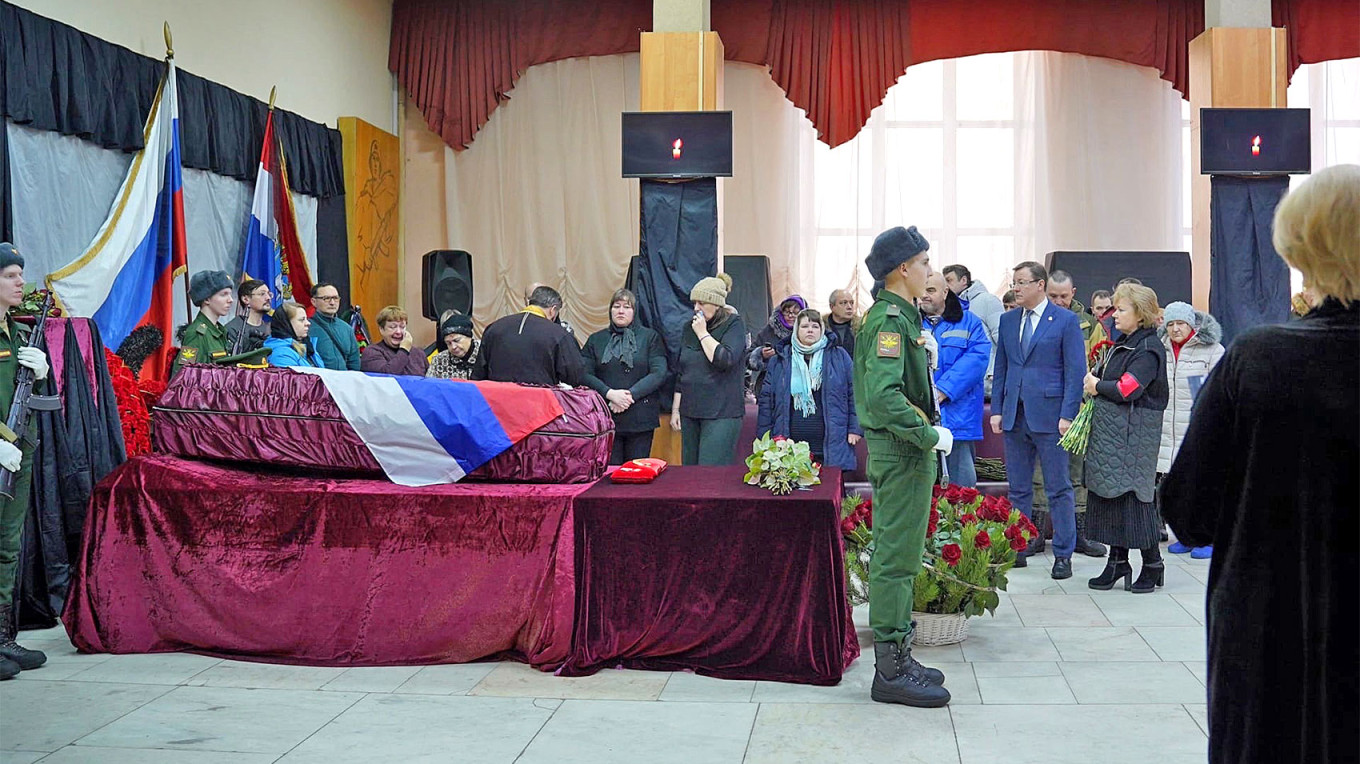
One mobilized soldier, who said he was helping clear the debris in Makiivka, told independent media outlet Verstka last week that military commanders had prohibited the dissemination of any information about what happened.
“No one will say anything. They are silencing everyone,” another woman, whose relative survived the attack, told the BBC Russian Service on Wednesday.
The lack of official information led local activists to launch a petition demanding the Defense Ministry make public a full list of those who were killed.
So far, over 52,000 people have signed the petition.
“Losses should not be underestimated and people should know who is alive and who is dead,” local activist Sergei Podsytnik, who launched the petition, told The Moscow Times.
“Of course, those soldiers who brought a gun to the territory of Ukraine are in the wrong, but relatives have the right to know what happened,” Podsytnik said.
Some relatives of those who were killed have also been upset by the Defense Ministry’s statement that mobile phones used by their servicemen allowed Kyiv to geolocate their positions and successfully target the troops in a vocational college building.
“I think it's nonsense,” Gorodnychy told The Moscow Times.
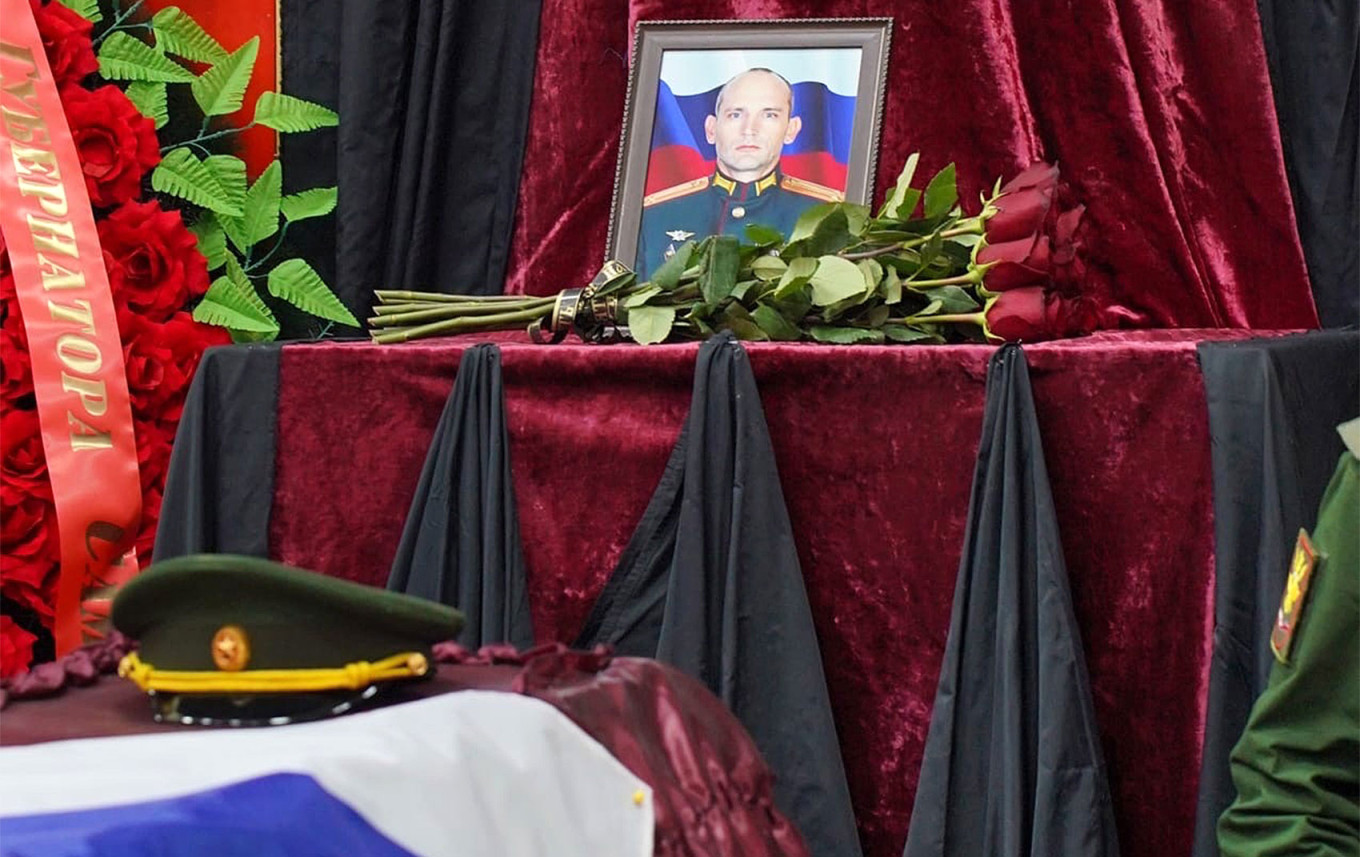
A relative of one Russian soldier killed in Makiivka said the men were using Ukrainian SIM cards to call their friends and relatives on New Year’s Eve.
“They threw away all Russian SIM cards back in [the southern Russian city of] Rostov, on the way to Makiivka, and then their commander took them to a special place where they bought Ukrainian SIM cards,” the relative told the BBC Russian Service.
Even if the Russian Defense Ministry figures do not downplay losses, 89 deaths in Makiivka would make it the most fatalities in a single attack since President Vladimir Putin ordered tanks into Ukraine at the end of February.
“They want to send them again to the frontlines, without artillery support, without cover, — just like cannon fodder,” Yevgenita Kulikova, the wife of a mobilized soldier, wrote Monday under a post on Vkontakte about local funerals by Samara region Governor Dmitry Azarov.
“When will it end?” wrote Natalia Kostyukhina, another Vkontakte user, under the same post.
“Stop sending our men to the meat grinder.”
A Message from The Moscow Times:
Dear readers,
We are facing unprecedented challenges. Russia's Prosecutor General's Office has designated The Moscow Times as an "undesirable" organization, criminalizing our work and putting our staff at risk of prosecution. This follows our earlier unjust labeling as a "foreign agent."
These actions are direct attempts to silence independent journalism in Russia. The authorities claim our work "discredits the decisions of the Russian leadership." We see things differently: we strive to provide accurate, unbiased reporting on Russia.
We, the journalists of The Moscow Times, refuse to be silenced. But to continue our work, we need your help.
Your support, no matter how small, makes a world of difference. If you can, please support us monthly starting from just $2. It's quick to set up, and every contribution makes a significant impact.
By supporting The Moscow Times, you're defending open, independent journalism in the face of repression. Thank you for standing with us.
Remind me later.



